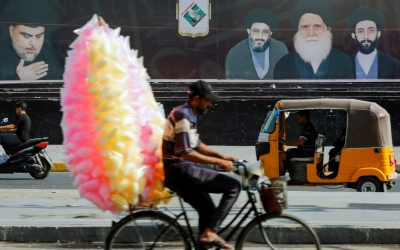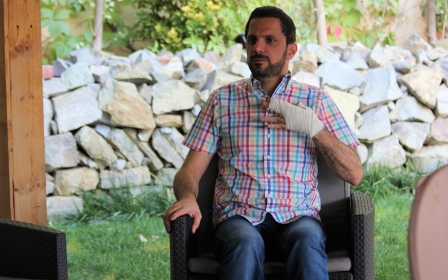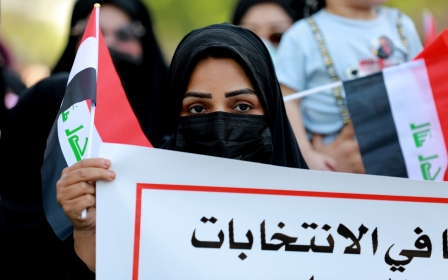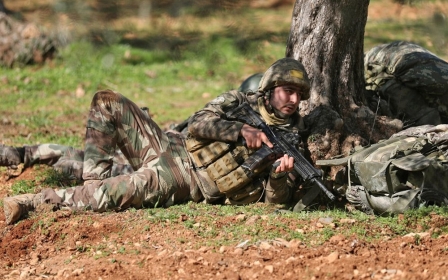Iraq: Protests against election results turn violent
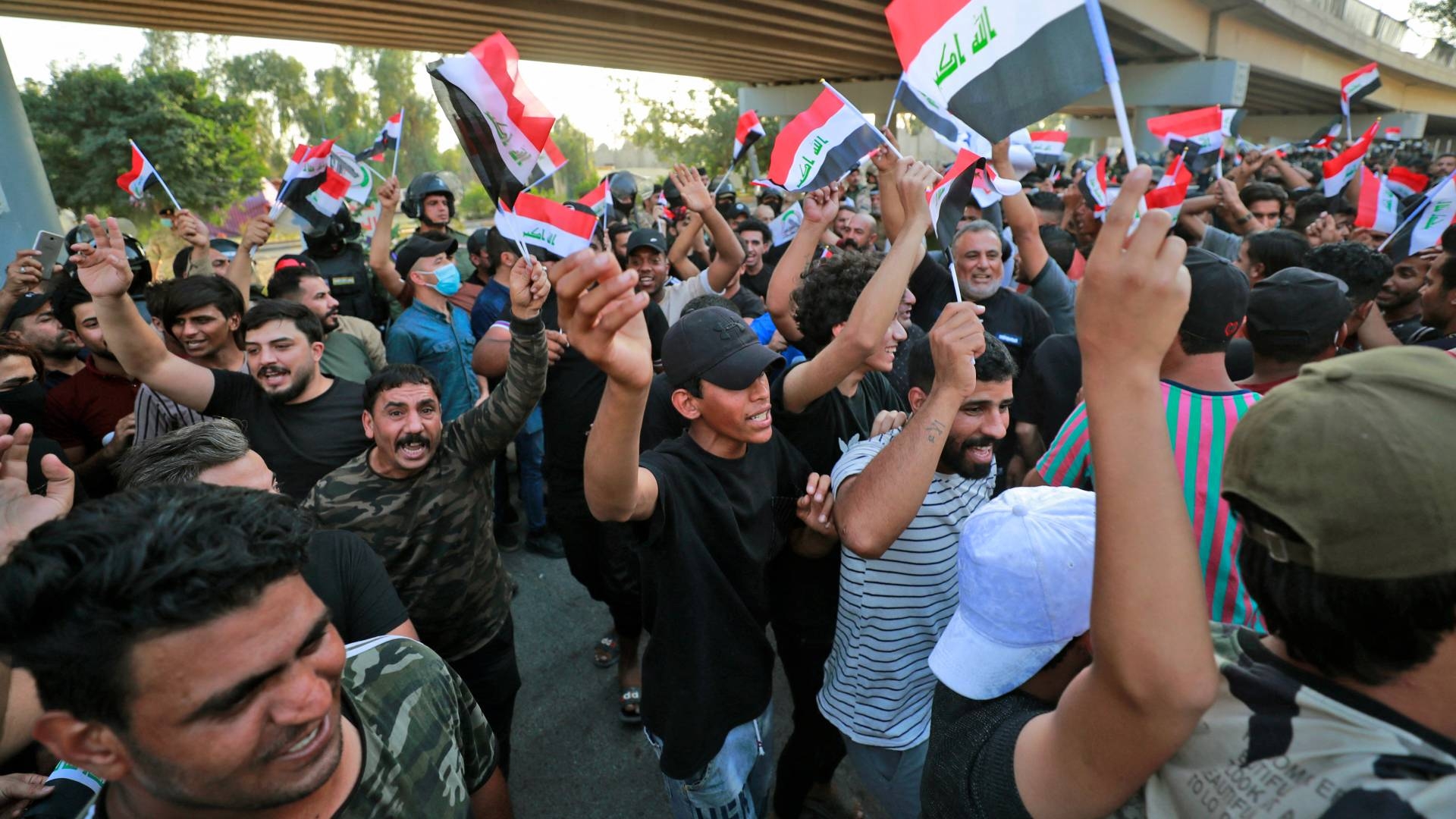
Protests against the results of Iraq's recent parliamentary election turned violent on Friday, with hundreds of supporters of pro-Iran political groups clashing with security forces in the capital Baghdad near the heavily fortified Green Zone.
Supporters of the pro-Iranian groups, which suffered large losses in the polls, threw stones at security forces, who in turn fired teargas and live rounds in the air to disperse the crowds.
The clashes erupted late on Friday when hundreds of demonstrators, who were divided into several groups, tried to cross Al-Jumhuriya Bridge, which leads to the Green Zone.
A second group tried to cross a suspension bridge leading to the Green Zone from an opposing side but were prevented from doing so by security forces.
Footage broadcast on pro-Iran channels on the messaging app Telegram showed security forces firing teargas and burning trees near the Green Zone to prevent the angry mob from advancing.
New MEE newsletter: Jerusalem Dispatch
Sign up to get the latest insights and analysis on Israel-Palestine, alongside Turkey Unpacked and other MEE newsletters
In an attempt to quell the situation, several political leaders, including Ammar al-Hakim, leader of al-Hikma movement; Haider al-Abadi, the former prime minister; Hadi al-Amiri, leader of the Badr Organization; and Qais al-Khazali, leader of Asa'ib Ahl al-Haq, called for calm.
Friday's protests came in response to recent election results which revealed that several pro-Iran political groups, most of whom are part of the Popular Mobilisation Forces (PMF), had attained a low number of seats in the new Iraqi parliament.
The pro-Iranian factions, led by the Badr Organisation, Asa'ib Ahl al-Haq, and Kata'ib Hezbollah, saw their seats decrease from 47 in the 2018 elections to about 20 seats following the 10 October parliamentary vote.
Influential Shia leader Muqtada al-Sadr, who campaigned as a nationalist and critic of Iran, emerged as one of the biggest winners, securing 74 seats in Iraq's 329-strong parliament.
The biggest parliamentary bloc has the exclusive right to nominate the prime minister and form a government, which represents a real threat to the Iranian-backed factions' existence and influence.
"The fraud that occurred in the recent legislative elections, under the supervision of [Prime Minister Mustafa] al-Kadhimi... has been met with popular rejection," the "Organising Committee for Demonstrations Rejecting the Election Results," which arranged Friday's protest, said in a statement.
"We hold al-Kadhimi and those with him... direct responsibility for the fall of dozens of martyrs and wounded, as a result of their brutal dealings with the sons of our proud people who are demanding the return of the right to its people," the statement read.
Although the organising committee claimed in its statement that there were several deaths among the protesters, security sources told Middle East Eye that there was one confirmed fatality.
The Ministry of Health said the number of wounded stood at 127, most of them being members of the security forces.
Need for reassurances
Late on Friday, calm returned to the capital, with demonstrators largely withdrawing from areas near the Green Zone.
Prime Minister Kadhimi issued strict orders to the security forces to close the gates of the Green Zone and the bridges leading to it, preventing confrontations with the demonstrators, a senior military commander told MEE.
On Thursday, Iraq's independent election commission announced that it had finished reviewing most of the appeals lodged following the elections and was nearing the completion of manually counting votes from polling stations where violations were reported.
The commission had received more than 1,300 appeals in the wake of the polls, most of which were lodged by the "Shia cooperation framework," an ad hoc group consisting mostly of Shia groups that performed poorly in the vote.
A prominent Shia political leader told MEE that the pro-Iran factions were aware that manually recounting votes would not change the outcome of the vote.
"They [the armed factions] are afraid and feel that their end is near," the leader, who requested anonymity, said.
"Sadr's insistence on forming a national majority government means that most of them [pro-Iran political factions] will be out of the equation.
"What they are seeking are reassurances. Reassurances that their losses will be limited and that their leaders will not be touched by anyone."
The parliamentary elections were originally scheduled to take place in 2022 but were brought forward as a concession to activists who organised protests against poverty and government corruption in late 2019.
Anti-corruption activists largely boycotted the election.
Middle East Eye delivers independent and unrivalled coverage and analysis of the Middle East, North Africa and beyond. To learn more about republishing this content and the associated fees, please fill out this form. More about MEE can be found here.


